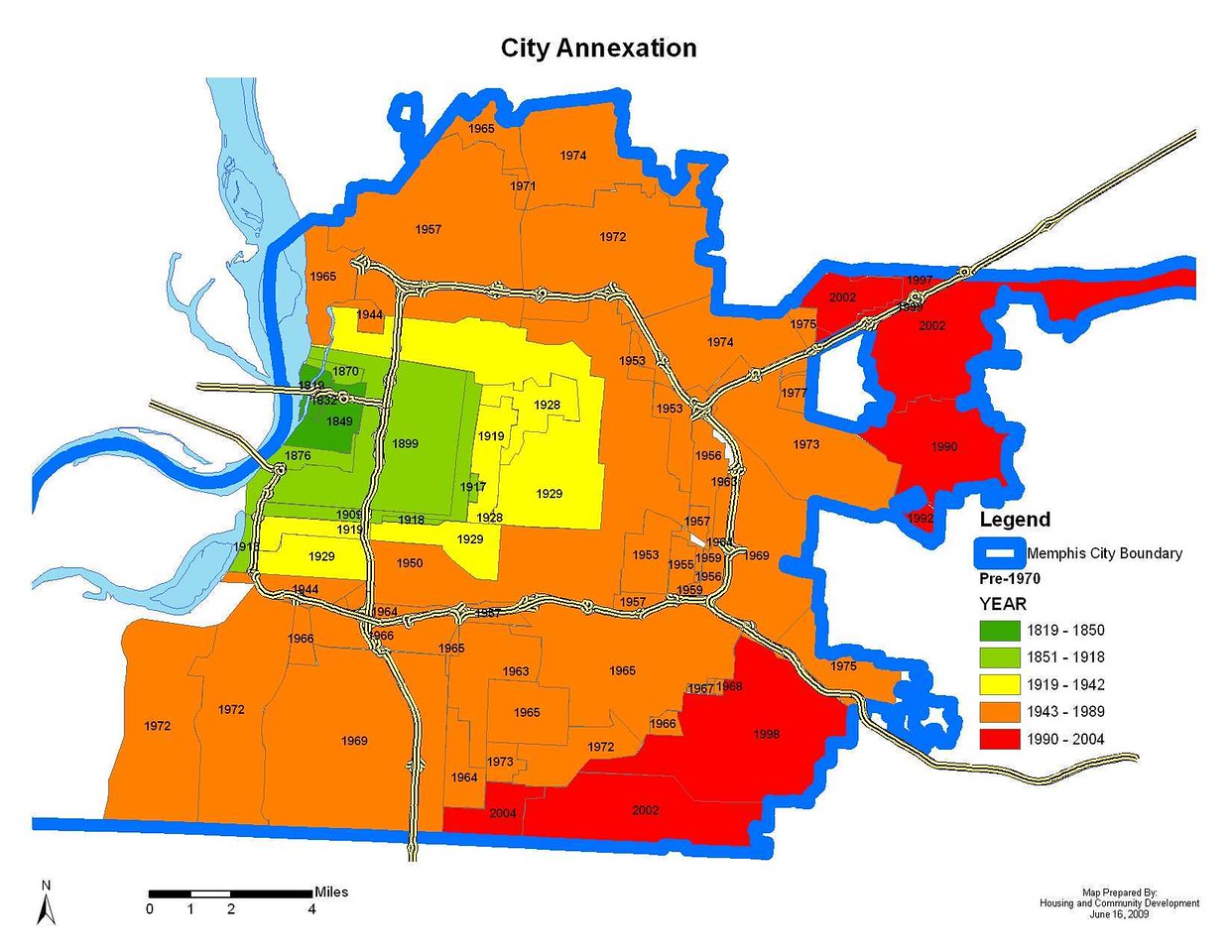Like many Sun Belt cities, Memphis owes its population growth over the last several decades to outward expansion. Since 1998 alone, the city has overseen 15 annexations, reports the Jacksonville-based blog Modern Cities.
But while it was sprawling (it now occupies a larger footprint than Chicago) its population density was decreasing by about half. Now the city believes that some of its farthest flung territory is more liability than asset.
Modern Cities explains:
In essence, Memphis is looking to slowly de-sprawl itself. If [a Memphis task force's] recommendations on de-annexation are approved, such actions would not be enacted until 2021, after the next municipal election. Memphis' sprawling landscape happened over several decades, so it would be reasonable not to expect the unfurling of these corrections to happen overnight.
The timing of the task force also coincides with the formation of Memphis 3.0, the city's first comprehensive strategic plan since 1981. If all goes according to schedule, Memphis 3.0 would be voted into law in 2019 -- the same year Memphis celebrates its 200th birthday. The population of Memphis would have shrunk since the end of World War II if not for the costly and often unpopular annexations that are now being considered for reversal. The non-organic nature of this growth scheme, coupled with decreases in average per capita income within these new city limits, has meant that less tax revenue is available to pay the costs of running a city whose footprint (and per-capita expenses) has ballooned to unsustainable levels.
The City's task force has recommended that seven areas be considered for de-annexation. Most the areas recommended are low density, rural areas with little infrastructure -- like sewer systems. If approved, de-annexing these areas would reduce the city's footprint 8 percent, its population 1.2 percent and its operating revenue 1.1 percent. In real terms, $7.6 million in net revenue and 10,672 residents would no longer be on Memphis' books. However, factoring in savings from a decrease in public safety and infrastructure costs, almost $1 million in net savings would be realized in the short term. In the long term, not being on the hook for deferred infrastructure maintenance costs and planned public safety facilities could offer the potential for significant cost-savings over the next 30-40 years.
More so than just the short-term cost savings, shrinking the city for the first time in decades represents a monumental change in the mindset of city officials. Memphis is larger in size than Chicago, but with only a fraction of the density of the Windy City, the city has spread itself too thin. A conscious recognition of the perils of this sprawling growth model means that municipal budgets can be re-prioritized to enhance services to existing neighborhoods instead of looking for new areas to swallow whole.
More recommended reading: At Planetizen, three professors recommend policies for cities in response to the potential introduction of self-driving cars. Transport Providence says city residents should call their their representatives in Congress and insist on a "fix it first" policy for infrastructure investment. And Reinventing Parking says that rather than lowering parking minimums, cities should be entirely eliminating them, like Buffalo.






